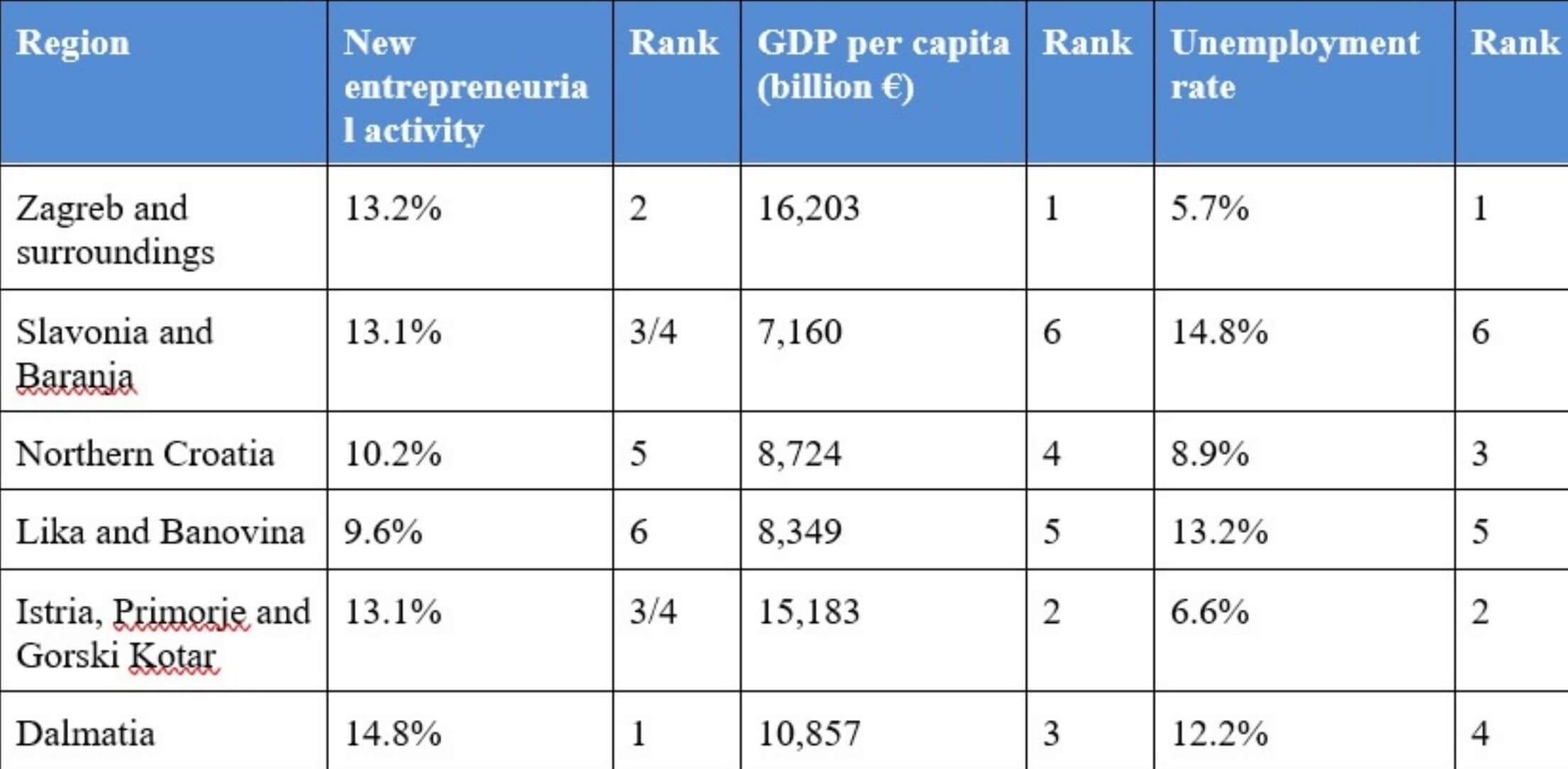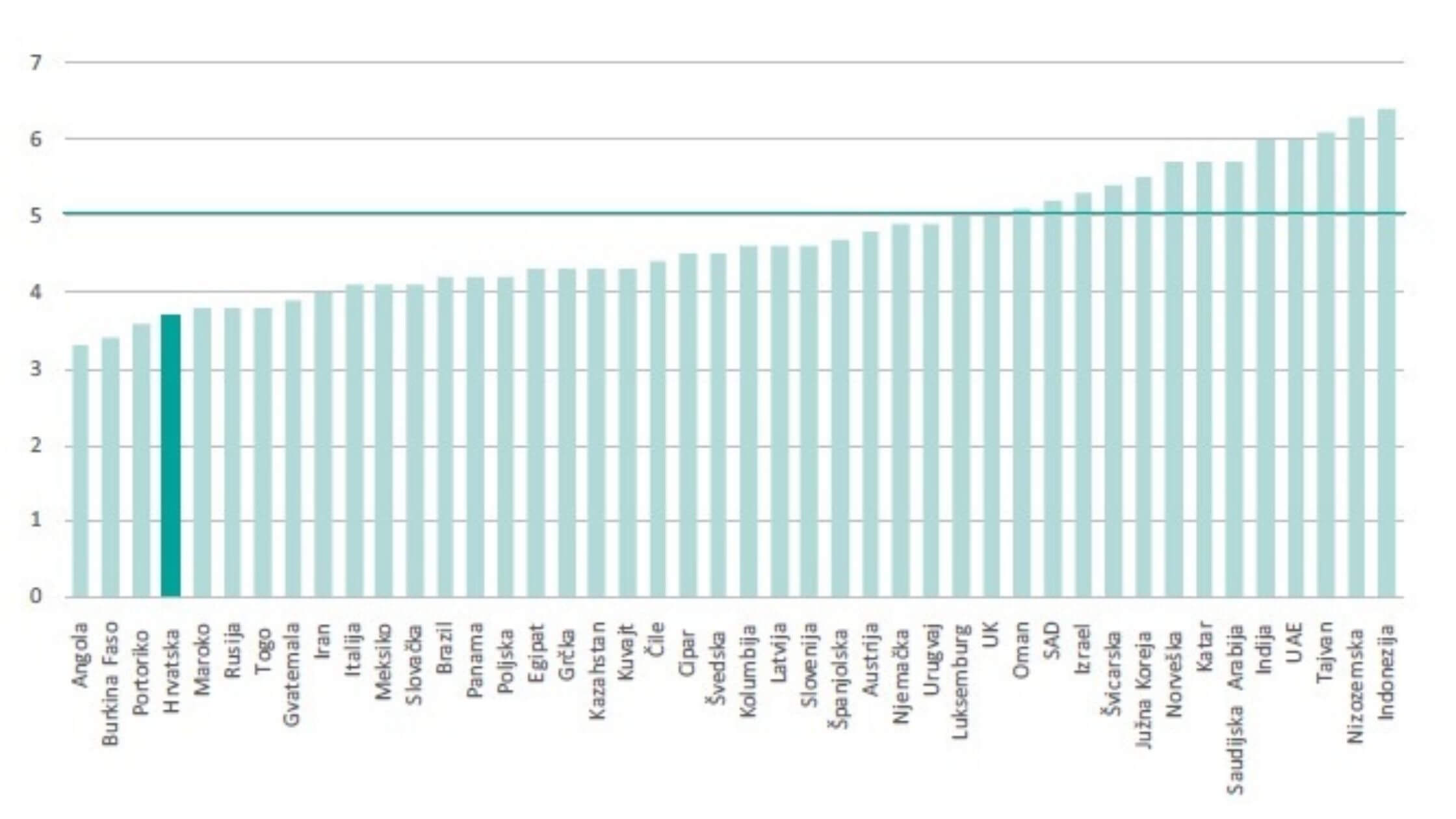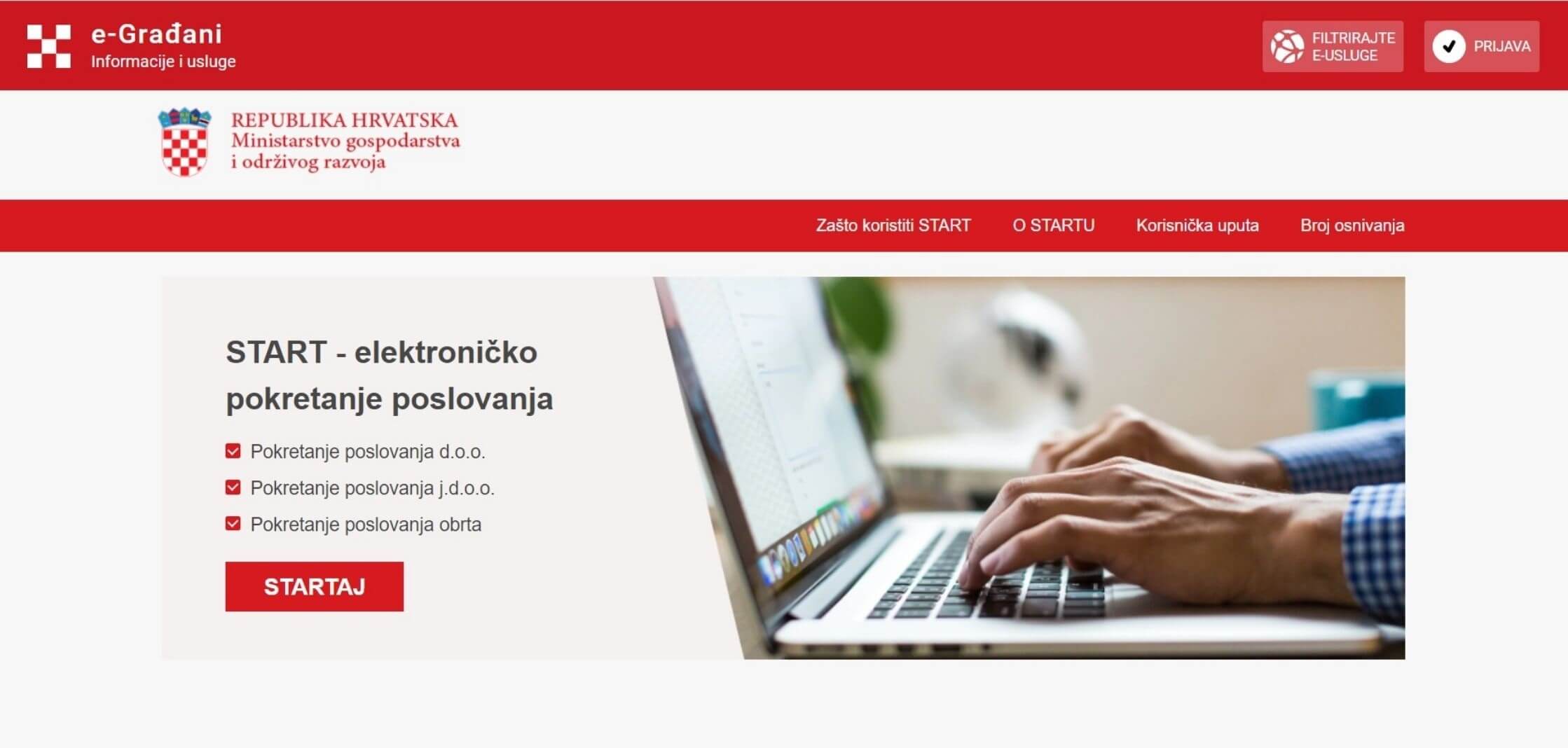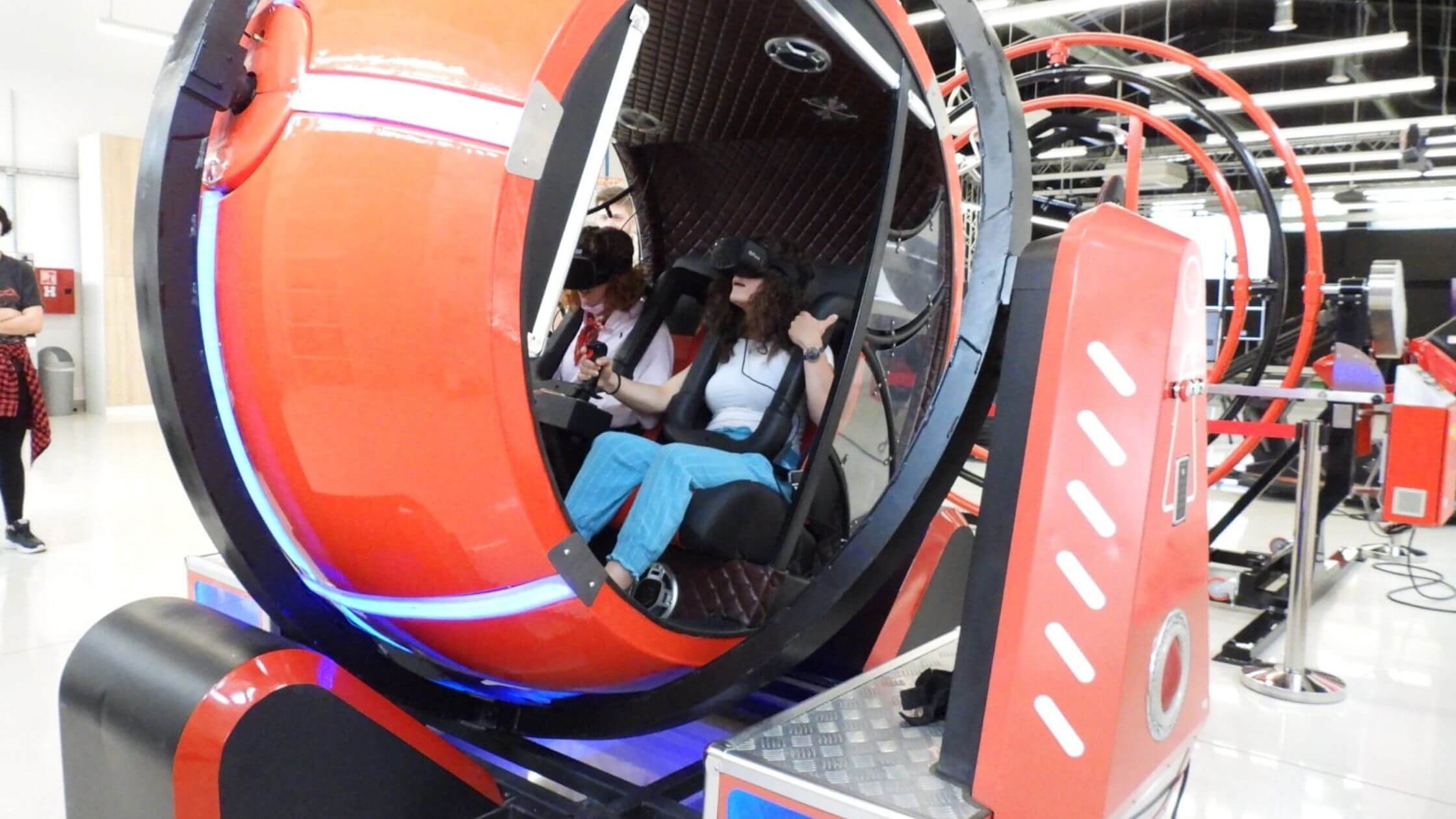February 1, 2022 - The last few were proud years for the Croatian entrepreneurial story. Mate Rimac dominated global headlines for making the world’s fastest electric car (Rimac C Two), partnering with Bugatti, and breaking ground on the €200 million campus in Zagreb. A look at entrepreneurship in Croatia.
While impressive by any standards, when it comes to the entrepreneurial landscape in Croatia, are we potentially missing the forest for the trees?
New entrepreneurial activities in Croatia by region in 2020

Table adapted from GEM report 2020
Data from the last 6 years of the Global Entrepreneurship Monitor (GEM) show that while the entrepreneurial ecosystem was off to a rocky start, much has been done in the past 2 years.
For more information from the latest GEM report (2019-2020), see TCN’s and here for the full GEM report 2020. GEM is the largest ongoing study of entrepreneurial dynamics in the world, spanning 115 countries.
Ripples from a shaky start
Since Croatia started participating in the GEM in 2000, reports over the years have revealed that the general business environment in Croatia has not been particularly conducive for entrepreneurs.
Out of 44 countries covered by the GEM survey in 2020, Croatia came in at 41. In 2019, Croatia ranked 50 out of 54 countries that participated. Within the European Union, this makes Croatia the country with the most difficult business environment for entrepreneurs.
Countries are ranked according to calculations from the National Entrepreneurship Context Index. A composite quality index that consists of a variety of measures including government policies, barriers to entry, research and innovation transfers, and entrepreneurial education.
 Graph GEM report 2020, (0 - very poor entrepreneurial environment, 10 - excellent entrepreneurial environment)
Graph GEM report 2020, (0 - very poor entrepreneurial environment, 10 - excellent entrepreneurial environment)
Moreover, the majority of individuals in Croatia turn to entrepreneurship as a necessity. These are individuals who have lost their jobs, exhausted all other employment options or are trapped in difficult financial situations.
This is compared to the population of entrepreneurs who are opportunity-driven. Highly disruptive innovators who have identified a gap in the market and created new businesses to serve those needs.
Between 2015-2017, GEM reports Croatia as either topping (2015), or near the top of the list amongst EU countries as having the largest proportion of adults who turned to entrepreneurship out of necessity.
Uplifting trends
By 2020, Croatia showed marked improvements by moving down the list of EU countries to take a middle spot (7 of 14) with less necessity-driven entrepreneurs. There is also a 4% increase in those who choose to become entrepreneurs in order to enact change in the world (35% to 39%), above the EU average of 37.2%.
New entrepreneurial activity (i.e. those who started a business in the last 2 years) also increased from 7.7% in 2015 to 12.7% in 2020, above the EU average at 8.1%.
By comparison, in the United States, 13% of adults are involved in entrepreneurial activity while the average is around 5% in Western European countries such as France, Germany, and Italy.
Moreover, a whopping 75% of the adult population in Croatia felt they were personally capable of starting a business venture, ranking 2nd of all countries that participated in the study. This is compared to only 47.5% that shared similar sentiments in 2015.
Of those who intended to start their own business, almost half of all respondents (47.2%) were confident of doing so in Croatia. This is more than double the number in 2015 (22.3%).
Alongside this growth, the government has also made recent changes to continue this positive trajectory and create a more robust entrepreneurial ecosystem for Croatians.
Steps in the right direction
Spearheaded by the Croatian government and the Ministry of Economy and Sustainable Development, START is an online platform established in December 2019 that enables Croatians to register 2 types of business entities online - d.o.o. (limited liability company), or a j.d.o.o. (simple limited liability company).
 Image: START website
Image: START website
The main goal of START was to address major pain points including the simplification of the administrative process, significantly reduce waiting times and lower costs of starting a business. Court fees to register the business are now 50% lower - HRK 400 to 200 for a d.o.o., and HRK 60 to 30 for a j.d.o.o. Entrepreneurs also no longer bear notarization fees.
It is no surprise that between the launch of START to the end of April 2021, over 1500 new entrepreneurs were able to launch their ventures.
Rapid rise of incubators
The past 2 years have also seen the inauguration of a number of start-up incubators and programs. Prior research confirms that entrepreneurs who participate in these programs establish firms with higher growth rates. Incubators also facilitate access to international markets, R&D programs, and funding, allowing entrepreneurs to become more innovative and produce more advanced technology.
Some examples in Croatia include, the PISMO Business Incubator in Novska, declared the best EU co-financed project in Croatia in 2020. They are also setting up a gaming campus later this year.

Premises of the PISMO Business Incubator. Image: PISMO Business Incubator/Facebook.
In 2021, the Croatian Digital Student incubator saw 2,000 registered participants from more than 160 schools from all over Croatia. Similarly, the first incubator for female entrepreneurs (Oaza incubator) and BIRD Incubator, the first AI/machine learning incubator also opened their doors.
Croatia’s National Recovery and Resilience Plan
Finally, in September 2021, the EU Council approved the assessment of Croatia’s National Recovery and Resilience Plan. This incentive came with the awarding of €6.3 billion in grants to enact reforms and projects to stimulate economic growth. The government has said part of the grants will go to assisting entrepreneurs in the areas of autonomous vehicles, renewable energy as well as water management.
For more, check out our lifestyle section.


